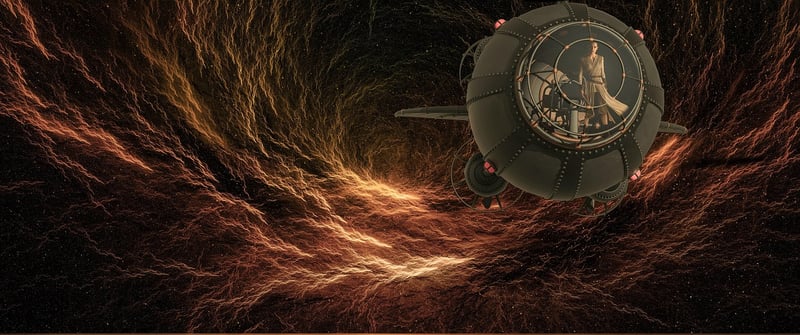Temporal Paradoxes
Navigating Time-Space Complexities and Temporal Paradoxes
Time and space have fascinated humanity for centuries, with concepts of time travel, wormholes, and parallel universes often sparking our imaginations. However, delving into these realms comes with complexities and potential paradoxes that challenge our understanding of the universe. Let's explore some of the key elements involved in navigating time-space complexities and the intriguing concept of temporal paradoxes.
Understanding Time-Space Complexities
Time and space are intricately linked, forming a fabric known as spacetime. According to Einstein's theory of relativity, spacetime can be distorted by massive objects, leading to phenomena like gravitational time dilation and black holes. Navigating time-space complexities involves grasping the non-linear nature of time and the curvature of space caused by gravity.
Wormholes and Time Travel
Wormholes, hypothetical tunnels in spacetime, have been theorized as potential shortcuts for traversing vast cosmic distances or even enabling time travel. However, the existence of wormholes remains speculative, and their stability is a subject of intense scientific debate. The concept of time travel raises questions about causality and the potential for creating paradoxes.
Parallel Universes and Multiverse Theory
The idea of parallel universes suggests the existence of multiple, separate realities coexisting alongside our own. This concept, often associated with multiverse theory, posits that every possible outcome and decision branches off into a new universe. Navigating the implications of parallel universes involves contemplating the nature of reality and the boundaries of our perception.
Temporal Paradoxes: A Mind-Bending Conundrum
Temporal paradoxes, also known as time paradoxes, are situations that challenge the logical consistency of time travel. The most famous of these paradoxes is the grandfather paradox, where a time traveler could potentially prevent their own existence by altering events in the past. Other paradoxes include the bootstrap paradox, where information or objects exist without origin.
Resolving Paradoxes and Theories of Time
Various theories have been proposed to address temporal paradoxes, such as the Novikov self-consistency principle, which suggests that any actions taken by a time traveler were always part of the timeline. Additionally, the multiple timelines theory posits that changes in the past create divergent realities rather than altering the original timeline. Navigating these theories requires a deep dive into the nature of causality and reality.
Conclusion
As we venture into the realms of time-space complexities and temporal paradoxes, we are faced with profound questions about the nature of existence and the boundaries of our understanding. While the concept of time travel and parallel universes may seem like science fiction, exploring these ideas pushes the boundaries of human knowledge and sparks our curiosity about the mysteries of the universe.


